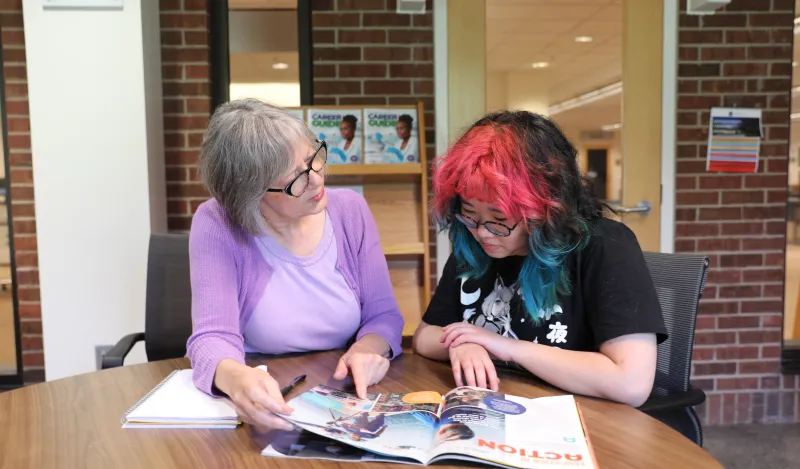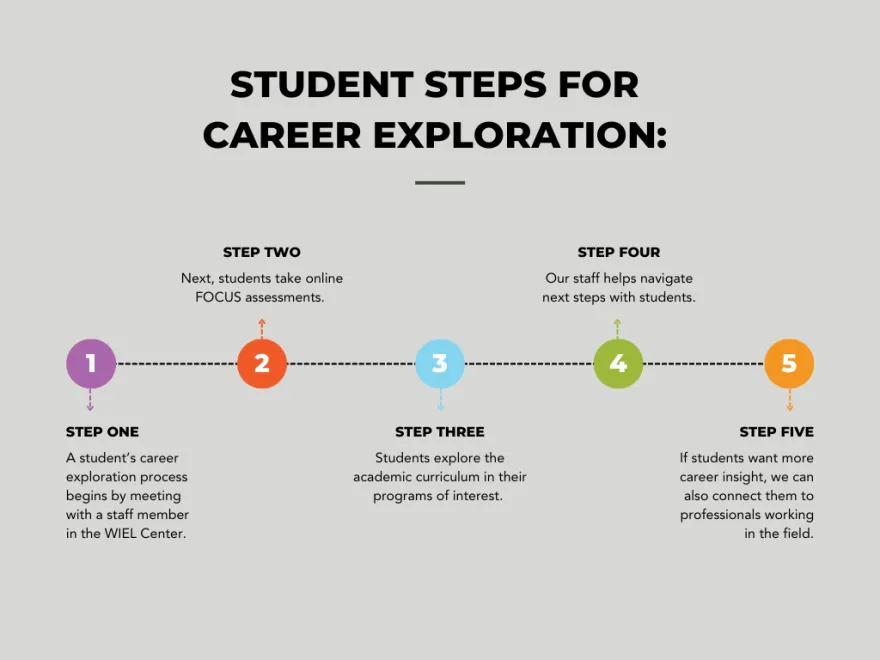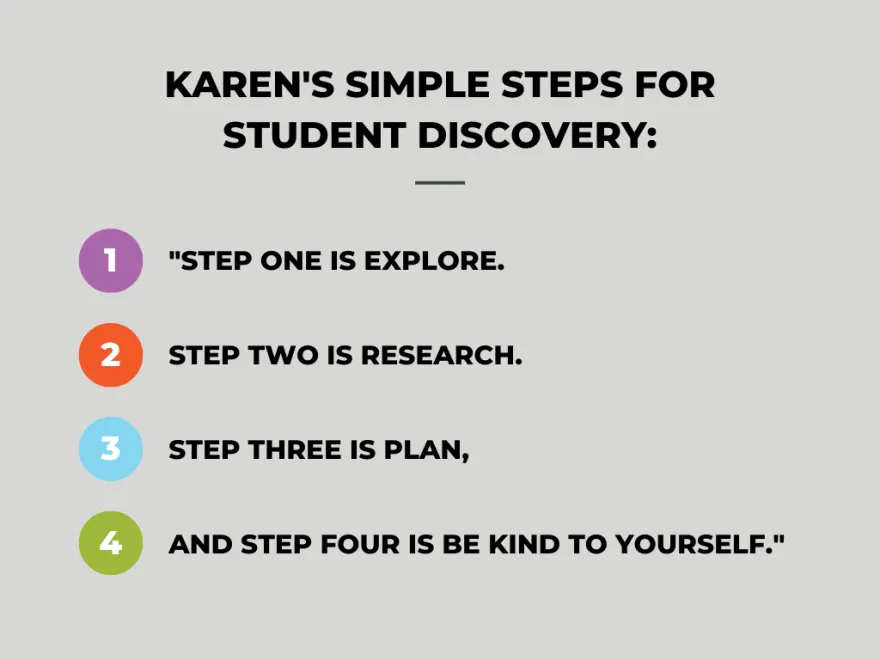
Karen Philbin is the Director of Career Services at NHCC. She works in the Workforce Innovation and Experiential Learning (WIEL) Center with students one-on-one. As a WIEL Center staff member, Karen also works closely with class curriculum. Karen helps students to find their major and gain career direction. We sat down with Karen to learn how she helps students through the career planning process.
The first step in a student’s career exploration process begins by meeting with a staff member in the WIEL Center and taking a few online FOCUS assessments. These assessments are career exploration tools that give students a holistic look at who they are. Oftentimes students are excited by what the assessment results teach them about themselves.
Our staff will then help students to explore curriculum and navigate next steps. If a student would like to learn more about a career they’re considering, we can also connect them to professionals who are currently working in the field.
Simply put, this is the student discovery process, “Step one is explore. Step two is research. Step three is plan, and step four is be kind to yourself.”
Karen often sees students limit their major options too much or choose a major for the wrong reasons. “Once students learn that their major offers more than just one career path, it takes the pressure off them. I like to tell students, give yourself permission to study something you enjoy!”
When it comes to finding a major, Karen advises, “Don’t be too rigid in your academic journey. Be flexible and honest with yourself if you need to make changes based on new discoveries about a career field, or pathway. Make sure you put yourself front and center.”
This shouldn’t be an academic focus solely important to your father, or your best friends’ program of choice, find a find of study that fits you personally. “Make sure your head and your heart are in synch with each other.”
When thinking about careers for the future, students should acknowledge and take ownership of the skills that they have. Students should also acknowledge what they don’t want in a career.
Remember, you have ownership of your career journey. “I help students to not think of career exploration as a chore.”
It is meaningful to Karen that she works with students to help take the anxiety out of career planning. She wants them to consider career options that appeal to them. “I want students to feel confident, I want them to go with the flow and find what is right for them in this moment, while maintaining a vision for future possibilities.”


